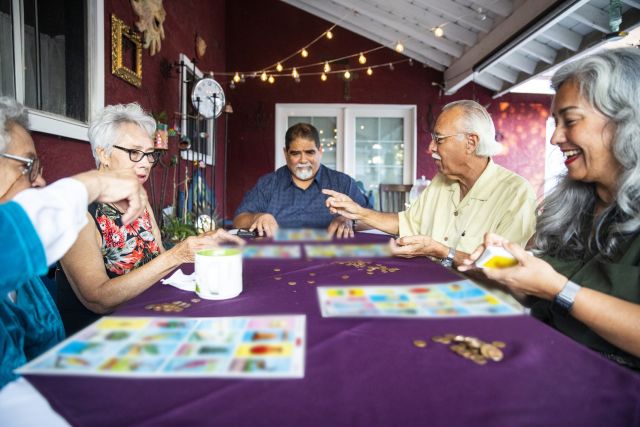Updated on March 31, 2022.
Sure, you could win a jackpot playing bingo, but the bigger prize may be what it does for your health. Research shows that leisure-time activities, including social pastimes and games, may help keep people healthier and feeling younger.
A study of 50,286 older Japanese adults published in 2022 in Preventive Medicine Reports counted up the number of leisure-time activities in which each person took part, as well as how many people developed new disabilities over a nearly 6-year period. These seniors were engaging in activities that ran the gamut from strenuous to relaxed, like jogging and reading, and solitary to social, like calligraphy and karaoke. The more activities a person did, the lower their chances of disability, the researchers found.
Another study specifically looked at, among other things, bingo. Over a 5-year period, researchers surveyed nearly 1,000 people about their social activities. They found that increased social activity -- things like going out to eat with friends, taking trips, and playing bingo—corresponded with a lower risk of disability in a group of older adults. People who got out of the house the most often to do social activities were twice as likely to be disability-free and independent as they aged. The study appeared in 2011 in Journals of Gerontology: Series A, Biological Sciences and Medical Sciences.
And, in keeping with what we know about certain behaviors being “contagious,” just being around people who are socially active may be good for you. A study of 32,388 people in Japan, published in 2022 in Journal of Urban Health, found that merely living in a neighborhood where a lot of people participate in social activities can delay the start of health problems.
Join the club
It's not exactly clear how playing games and socializing may ward off disability, but scientists suspect frequent interaction with others keeps the brain sharp and helps support the musculoskeletal system, too. (Of course, musculoskeletal problems and disabilities can also prevent people from getting out and socializing.) It may also be that people's social ties motivate them to stay in good physical shape so they can continue to get out and enjoy other people's company.







